
Medina Coura: The Cultural Heartbeat of Bamako
Medina Coura in Bamako, Mali, is a vibrant and bustling neighborhood that offers a unique blend of traditional and modern African life. As you wander through its lively streets, you’ll be greeted with the sights, sounds, and smells that define the local culture. The area is a mosaic of colorful markets, street vendors, and local shops that provide a truly immersive experience for any visitor. Medina Coura is renowned for its rich history and cultural significance. It is home to some of Bamako’s most important landmarks, including the Grand Marché, where you can find everything from fresh produce to handmade crafts. The neighborhood also boasts several historical sites and museums that offer a glimpse into Mali’s storied past. Food lovers will delight in the culinary offerings of Medina Coura. From traditional Malian dishes like jollof rice and grilled meats to international cuisine, the neighborhood’s eateries cater to all tastes. Don’t miss out on trying some local street food, which is both delicious and affordable. The community spirit in Medina Coura is palpable. The locals are friendly and welcoming, always ready to share their stories and traditions with visitors. Whether you’re exploring the markets, visiting historical sites, or enjoying a meal, you’ll find that Medina Coura is a neighborhood that captures the essence of Bamako.
Local tips in Medina Coura
- Visit the Grand Marché early in the morning to experience the market at its liveliest and to get the best deals.
- Wear comfortable shoes as you’ll be doing a lot of walking through the bustling streets and markets.
- Try the local street food, but make sure it’s freshly cooked to avoid any stomach issues.
- Learn a few basic phrases in French or Bambara to help communicate with the locals, who will appreciate the effort.
- Carry small denominations of the local currency as street vendors and small shops often don’t have change for large bills.
Medina Coura: The Cultural Heartbeat of Bamako
Medina Coura in Bamako, Mali, is a vibrant and bustling neighborhood that offers a unique blend of traditional and modern African life. As you wander through its lively streets, you’ll be greeted with the sights, sounds, and smells that define the local culture. The area is a mosaic of colorful markets, street vendors, and local shops that provide a truly immersive experience for any visitor. Medina Coura is renowned for its rich history and cultural significance. It is home to some of Bamako’s most important landmarks, including the Grand Marché, where you can find everything from fresh produce to handmade crafts. The neighborhood also boasts several historical sites and museums that offer a glimpse into Mali’s storied past. Food lovers will delight in the culinary offerings of Medina Coura. From traditional Malian dishes like jollof rice and grilled meats to international cuisine, the neighborhood’s eateries cater to all tastes. Don’t miss out on trying some local street food, which is both delicious and affordable. The community spirit in Medina Coura is palpable. The locals are friendly and welcoming, always ready to share their stories and traditions with visitors. Whether you’re exploring the markets, visiting historical sites, or enjoying a meal, you’ll find that Medina Coura is a neighborhood that captures the essence of Bamako.
Iconic landmarks you can’t miss
Tower Of Africa
Explore Mali's heritage at the Tower of Africa: a symbol of unity with panoramic views of Bamako.
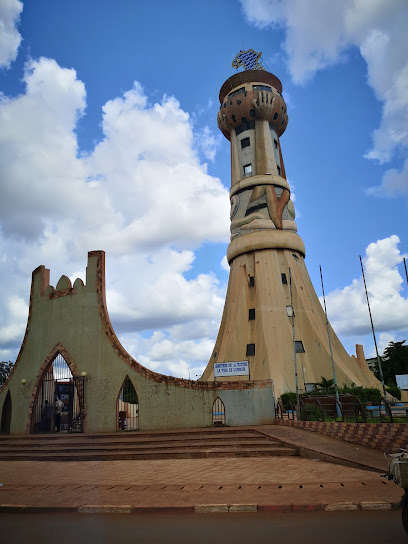
Mali National Park.
Escape to nature in Bamako's backyard: Hike scenic trails, spot diverse wildlife, and immerse yourself in Malian culture at Mali National Park.
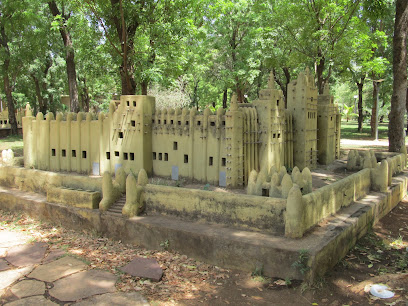
Grande Mosquée de Bamako
Discover the Grande Mosquée de Bamako, an architectural gem embodying Mali's rich cultural and spiritual heritage in the heart of Bamako.
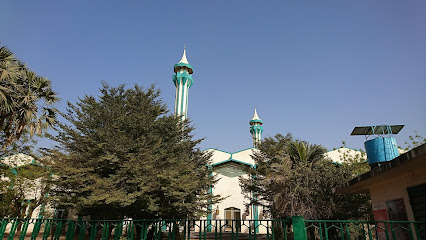
ZOO NATIONAL DU MALI
Explore Mali's wildlife at ZOO NATIONAL DU MALI in Bamako, a vibrant destination for families and nature enthusiasts to discover diverse species.
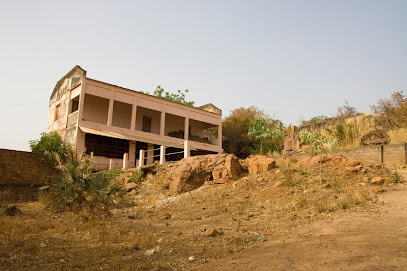
National Museum
Explore Mali's rich history and cultural heritage at the National Museum in Bamako, showcasing diverse artifacts and traditions.
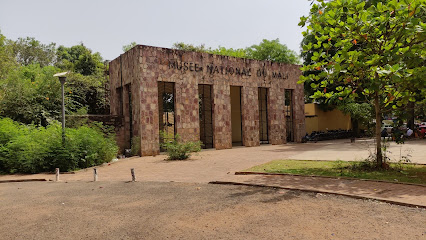
Monument of Independence
A Bamako landmark celebrating Mali's independence, blending modern design with traditional Malian motifs in a vibrant, historical setting.
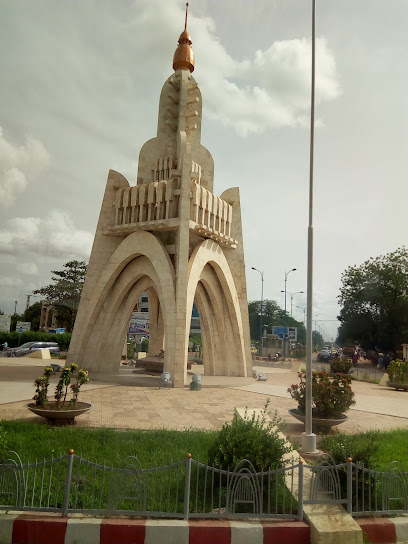
Yacouba Guindo Mosque
Discover the Yacouba Guindo Mosque in Bamako, a stunning example of Islamic architecture and a vibrant center of Malian culture.
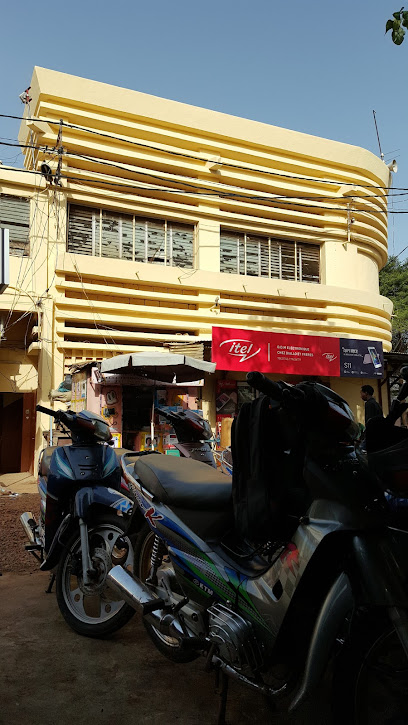
Ali Farka Toure Monument
Explore the Ali Farka Toure Monument in Bamako, a tribute to Mali's musical genius and a cultural landmark celebrating the rich heritage of African music.
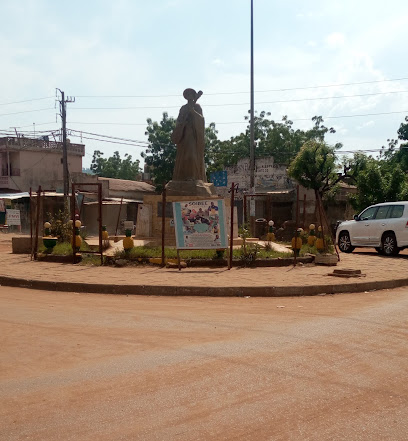
Cathedral of the Sacred Heart of Bamako
Discover Bamako's colonial heritage at the Cathedral of the Sacred Heart, a landmark of faith and architectural beauty.
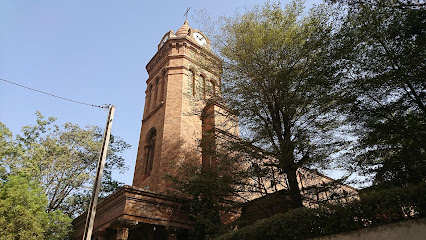
Casino de l'Amitié à Bamako
Experience the thrill of gaming, live entertainment, and local cuisine at Bamako's Casino de l'Amitié, a cultural hotspot.
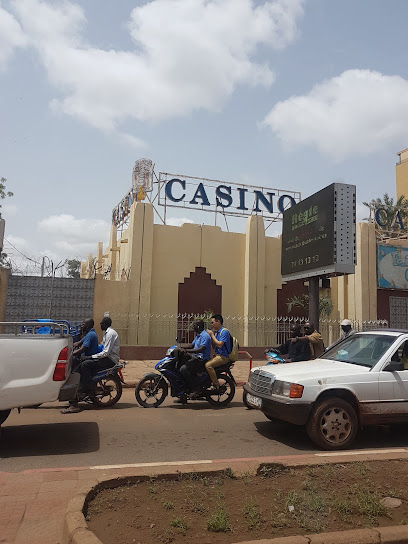
Monument de la Paix
A symbol of peace and unity in Bamako, commemorating Mali's journey towards reconciliation and hope for a harmonious future.
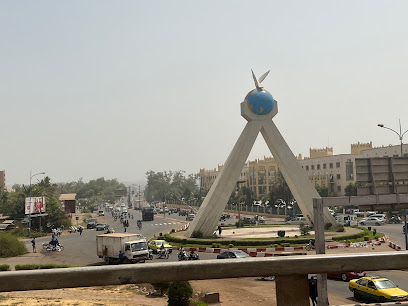
Salle Cimena De Medina Coura
Discover the charm of Malian cinema at Salle Cimena De Medina Coura in Bamako, a unique movie theater showcasing local and international films.
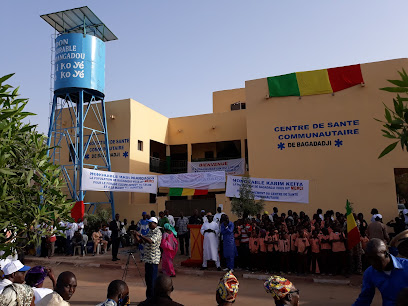
Monument Abdoulaye soumare
A tribute to Mali's military heritage, honoring General Abdoulaye Soumare and the nation's defenders in the heart of Bamako.
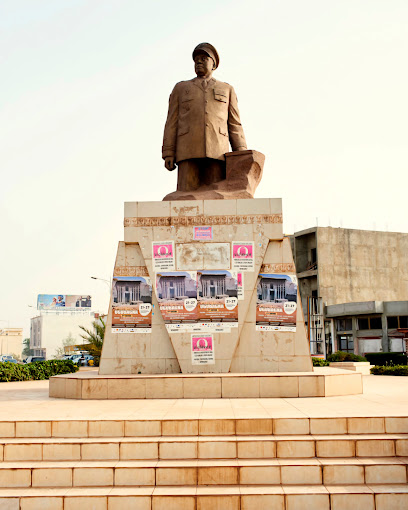
Monument Nkouamé Nkruma
A tribute to Kwame Nkrumah and Pan-African ideals, this Bamako monument offers reflection and cultural immersion.
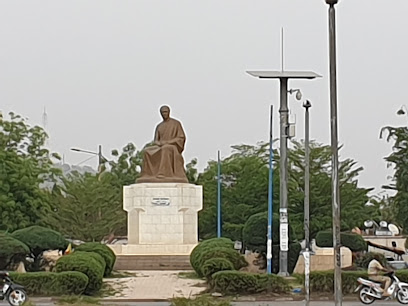
Bienvenue / Welcome in Bamako
Experience the vibrant culture and rich history of Bamako, the heart of Mali, filled with lively markets, stunning landmarks, and warm hospitality.
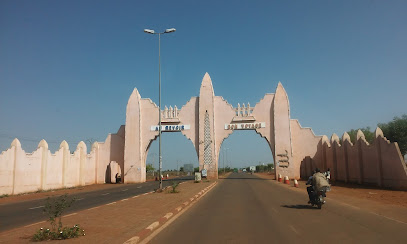
Unmissable attractions to see
Place du Cinquantenaire
Explore the cultural heart of Bamako at Place du Cinquantenaire, a stunning historical monument surrounded by lush gardens and vibrant local life.
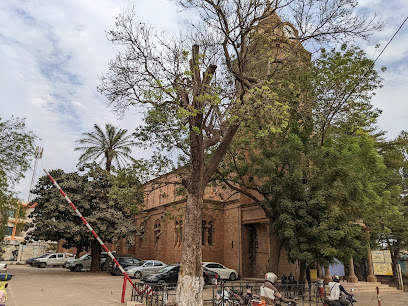
Yacouba Guindo Mosque
Explore the serene Yacouba Guindo Mosque in Bamako, a stunning architectural gem showcasing the rich cultural heritage of Mali.
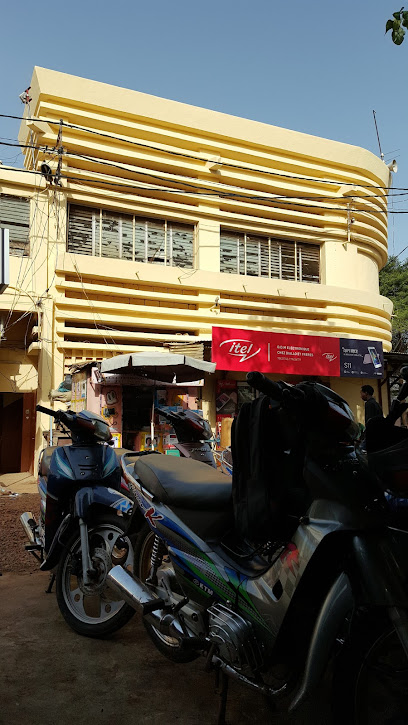
Musée de Bamako
Explore the captivating art and history of Mali at Musée de Bamako, where tradition and contemporary culture beautifully intertwine.
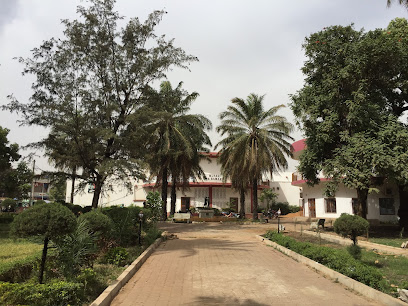
Essential places to dine
Chez Thierry
Experience authentic Malian cuisine at Chez Thierry in Bamako - where tradition meets taste in every bite.
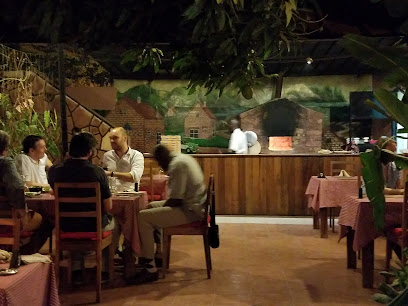
Restaurant Café De Bamako
Discover authentic Malian cuisine at Café De Bamako in Medina Koura, where vibrant flavors meet welcoming hospitality.
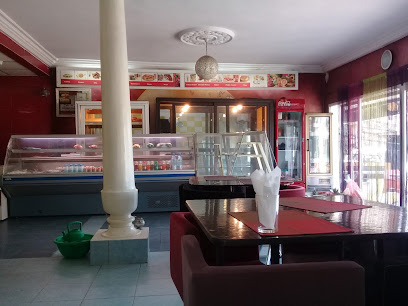
Le Nid
Experience authentic Malian cuisine at Le Nid in Bamako—where culture meets culinary delight in a warm atmosphere.
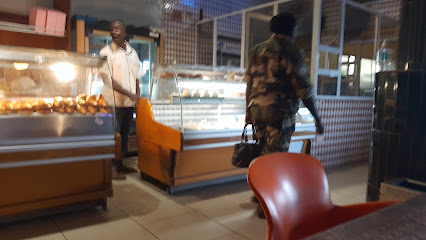
Restaurant Balasoko
Discover authentic Malian cuisine at Restaurant Balasoko in Bamako - where every meal tells a story of flavor and tradition.
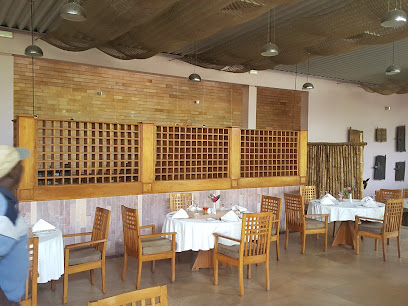
CAFE CALEBASSE
Discover authentic African cuisine at Café Calabasse in Bamako - where tradition meets flavor in every bite.
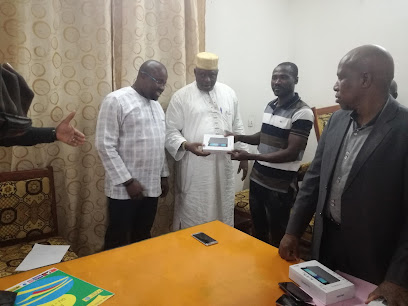
Le café de Line
Discover the flavors of Mali at Le Café de Line – where local cuisine meets international flair in the heart of Bamako.

Restaurant Wassa-Wassa
Experience authentic Malian cuisine at Restaurant Wassa-Wassa in Bamako’s vibrant Hippodrome district – where tradition meets flavor.
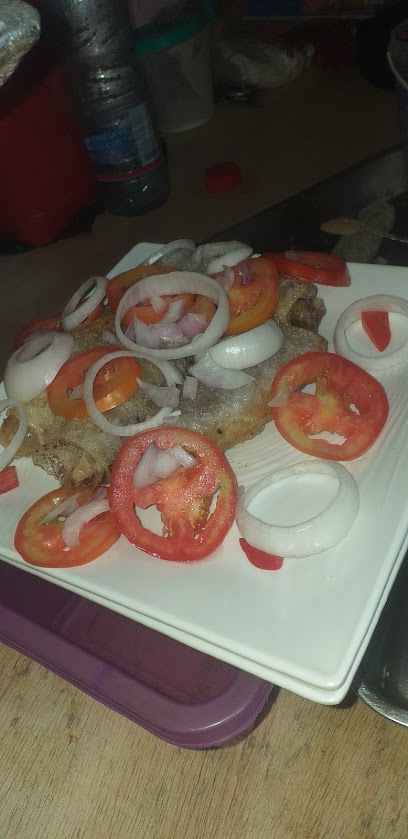
Centre de Formation Café de Bamako
Experience authentic Malian flavors at Centre de Formation Café de Bamako – where tradition meets taste in a vibrant setting.

Dibiterie chez One close
Discover traditional Malian flavors at Dibiterie chez One in Bamako – where every dish tells a story.

Mister Chô
Experience the flavors of Mali at Mister Chô in Bamako - where tradition meets modern culinary excellence.
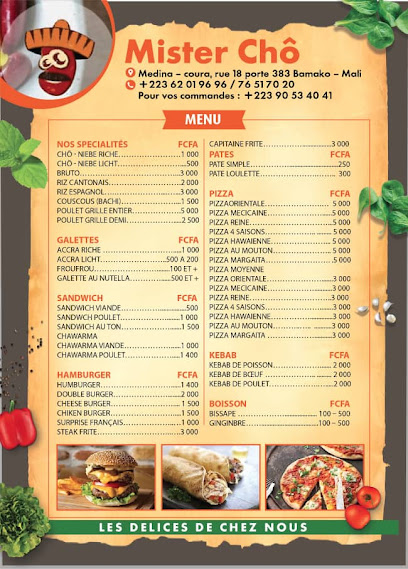
Markets, malls and hidden boutiques
Badenya Boutique N2
Experience the vibrant culture and unique shopping at Badenya Boutique N2 in Bamako, a must-visit destination for every traveler.
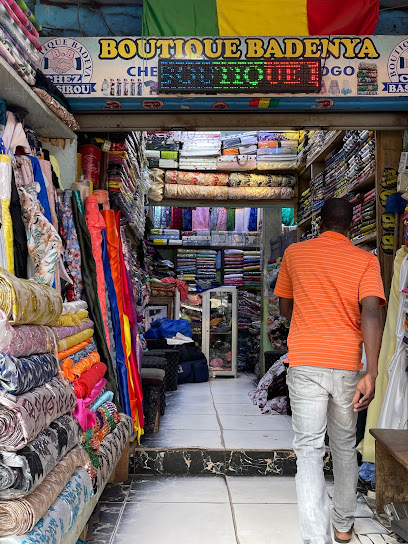
Babacar boutique
Experience the artistry of Malian craftsmanship at Babacar Boutique, the premier destination for exquisite handbags in Bamako.
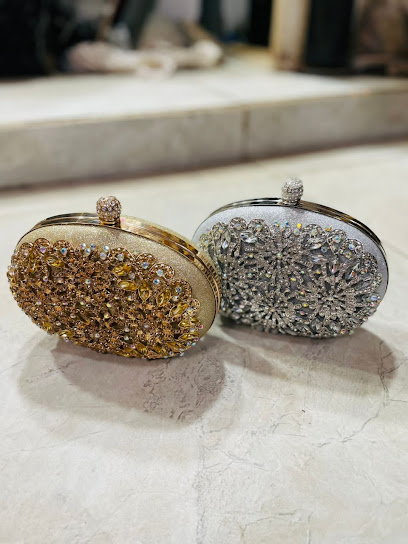
DOUC SHOP
Explore the vibrant fashion scene at DOUC SHOP in Bamako, where local culture meets unique style in a delightful shopping experience.
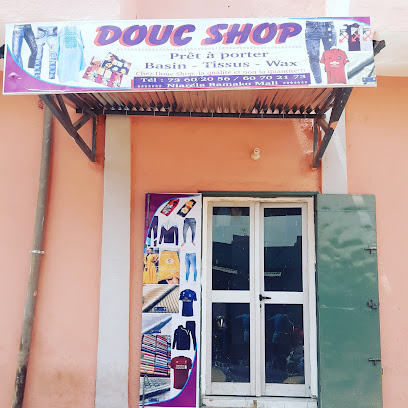
Sylla
Explore Sylla in Bamako for a unique blend of traditional and modern dresses showcasing Mali's vibrant textile heritage.
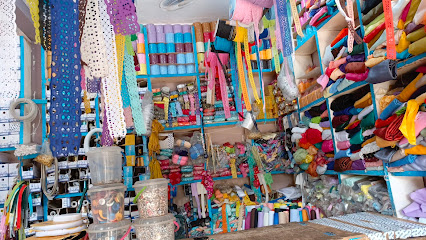
Mariah Bocoum
Uncover the essence of Malian culture at Mariah Bocoum Boutique, your go-to destination for unique fashion and artisan crafts in Bamako.
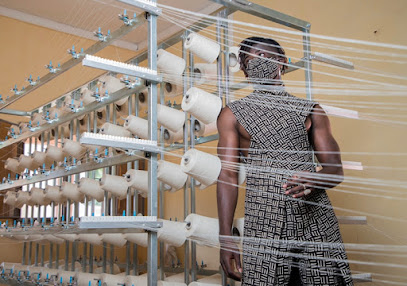
Oc Shop
Explore the dynamic e-commerce landscape of Bamako at Oc Shop, where local craftsmanship meets global connectivity.

গালিচা মার্কেট
Discover the charm of Ghalicha Market in Bamako, where vibrant fashion meets rich Malian culture in an unforgettable shopping experience.
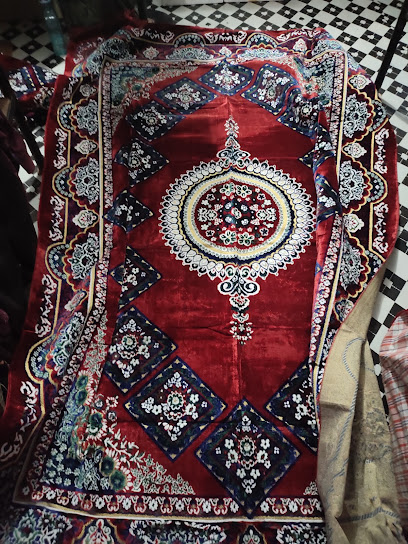
Shopping
Discover Bamako's clothing store, where traditional Malian fashion meets modern trends in a vibrant shopping experience.

Boutique Bill Shop
Explore Boutique Bill Shop in Bamako for authentic Mali gifts and unique treasures that capture the essence of the local culture.
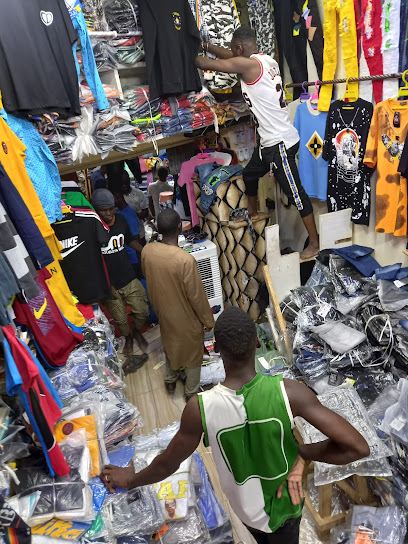
Boutique Bamako soukounikoura
Explore the essence of Mali at Boutique Bamako Soukounikoura, where tradition meets artistry in every handcrafted piece.

Essential bars & hidden hideouts
Bla Bla Bar
Experience the vibrant nightlife of Bamako at Bla Bla Bar, where local culture meets a lively atmosphere and refreshing drinks.
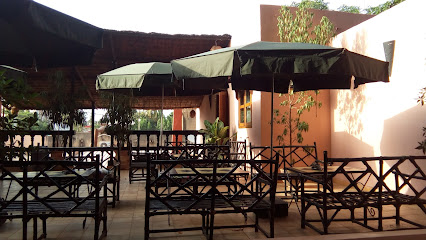
Le Pub Bar
Discover the vibrant nightlife of Bamako at Le Pub Bar, where local culture meets delicious drinks and great ambiance.
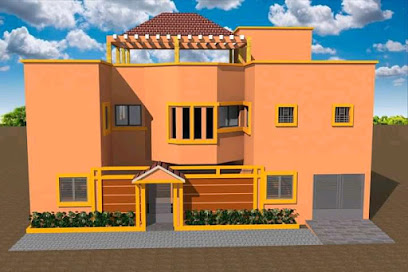
Fazenda
Discover the vibrant ambiance of Fazenda, a lively bar in Bamako where culture, drinks, and camaraderie converge for an unforgettable experience.

Baguineda
Experience the vibrant nightlife of Bamako at Baguineda, a lively bar offering local drinks and a welcoming atmosphere.
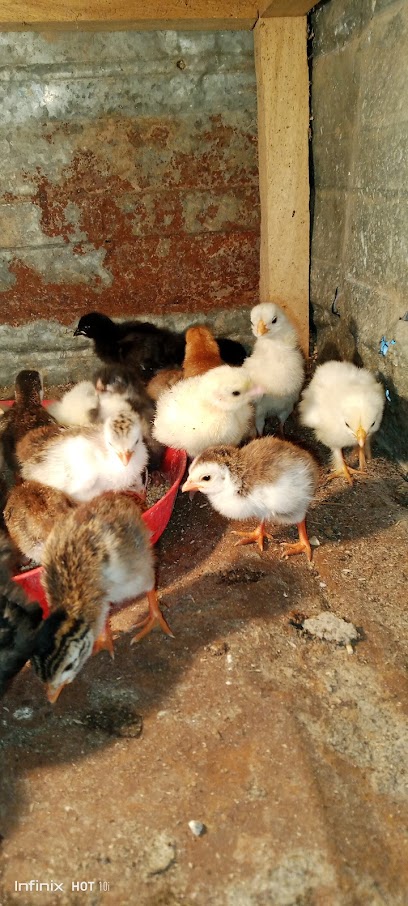
Hangover Bamako
Experience the vibrant nightlife of Bamako at Hangover Bamako, where every night is a celebration filled with music, drinks, and unforgettable moments.
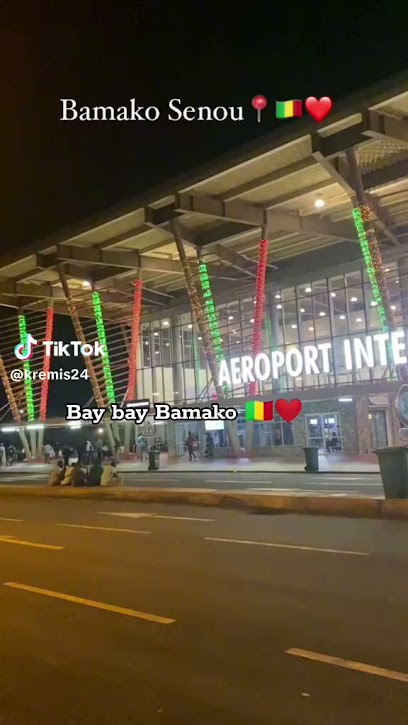
3ème Da (Arrondissement)
Discover the heart of Bamako's nightlife at 3ème Da, where local culture, vibrant pubs, and authentic flavors come together for an unforgettable experience.

ONE BEER LOUNGE DU BAR CODE
Discover the vibrant nightlife of Bamako at One Beer Lounge Du Bar Code, where great drinks and a lively atmosphere await you.

Koulikoro
Discover the vibrant nightlife of Koulikoro, a lively bar near Bamako, where locals and tourists enjoy refreshing drinks and a warm atmosphere.

Wakanda
Experience the vibrant nightlife at Wakanda, the premier bar in Bamako offering unique cocktails and a lively atmosphere.

Gouana
Experience the vibrant nightlife of Bamako at Gouana, where local culture, refreshing drinks, and a lively atmosphere await.

Local Phrases
-
- HelloSalam
[sa-lam] - GoodbyeAn bè kè
[an beh keh] - YesOo
[oo] - NoAayi
[a-yi] - Please/You're welcomeBarika
[ba-ri-ka] - Thank youI ni ce
[ee nee say] - Excuse me/SorrySamay bè
[sa-may beh] - How are you?I ka kènè
[ee ka keh-neh] - Fine. And you?Alhamdulillah. I ka kènè?
[al-ham-doo-lee-lah ee ka keh-neh] - Do you speak English?I ka kalan Angale
[ee ka ka-lan an-ga-leh] - I don't understandMogo si don
[mo-go see don]
- HelloSalam
-
- I'd like to see the menu, pleaseM'bi ka kala meni, barika
[um-bee ka ka-la meh-nee ba-ri-ka] - I don't eat meatM'bi tè kè duga
[um-bee teh keh doo-ga] - Cheers!Awa!
[a-wah] - I would like to pay, pleaseM'bi ka sira, barika
[um-bee ka see-rah ba-ri-ka]
- I'd like to see the menu, pleaseM'bi ka kala meni, barika
-
- Help!Ntɛn!
[n-ten] - Go away!Kɔnɔ!
[ko-no] - Call the Police!Tɔgɔ manan tan!
[to-go ma-nan tan] - Call a doctor!Tɔgɔ bɔrɔ tan!
[to-go bo-ro tan] - I'm lostM'bi tè di
[um-bee teh dee] - I'm illM'bi tè tɛn
[um-bee teh ten]
- Help!Ntɛn!
-
- I'd like to buy...M'bi ka nafolo...
[um-bee ka na-fo-lo] - I'm just lookingM'bi ce ka bè
[um-bee say ka beh] - How much is it?Nin kè?
[neen keh] - That's too expensiveI ka faga tè tè
[ee ka fa-ga teh teh] - Can you lower the price?I ka sira kè fila
[ee ka see-rah keh fee-la]
- I'd like to buy...M'bi ka nafolo...
-
- What time is it?Nin tɛnɛ?
[neen ten-eh] - It's one o'clockNin kɔɲɔ
[neen ko-nyo] - Half past (10)Kɔgɔn kɔnɔ (tan)
[ko-gon ko-no tan] - MorningSan kɛlɛ
[san keh-leh] - AfternoonTɛnɛ kɛlɛ
[ten-eh keh-leh] - EveningKɔnɔ kɛlɛ
[ko-no keh-leh] - YesterdayKunu
[koo-noo] - TodayBi
[bee] - TomorrowSabali
[sa-ba-lee] - 1Kelen
[keh-len] - 2Filen
[fee-len] - 3Saba
[sa-ba] - 4Nana
[na-na] - 5Dɔrɔ
[do-ro] - 6Wɔrɔ
[wo-ro] - 7Kɛta
[ke-ta] - 8Saba kelen
[sa-ba keh-len] - 9Saba filen
[sa-ba fee-len] - 10Dunia
[doo-nee-a]
- What time is it?Nin tɛnɛ?
-
- Where's a/the...?Nin ko...
[neen ko] - What's the address?Nin kɔrɔ
[neen ko-ro] - Can you show me (on the map)?I ka mara ka bɔ
[ee ka ma-ra ka bo] - When's the next (bus)?Nin kɔnɔ (bus)
[neen ko-no bus] - A ticket (to ....)Tikitɔ (kɔ ....)
[tee-kee-toh ko]
- Where's a/the...?Nin ko...
History of Medina Coura
-
Medina Coura, a vibrant neighborhood in Bamako, has its roots in the early formation of the city in the 19th century. The area became a settlement for traders and artisans due to its strategic location along the Niger River, facilitating trade routes that linked the region with other parts of West Africa.
-
During the French colonial period in the late 19th and early 20th centuries, Medina Coura experienced significant changes. The French established administrative structures and promoted the cultivation of cash crops, which transformed the local economy. The architectural styles from this era can still be seen in some of the buildings in the neighborhood.
-
After Mali gained independence in 1960, Medina Coura became a focal point for political and cultural activities. The neighborhood witnessed a surge in nationalism and community organization, with residents actively participating in the new government's initiatives to promote education and local governance.
-
Medina Coura is known for its rich cultural tapestry, where diverse ethnic groups, including the Bambara, Malinke, and Fulani, coexist. The neighborhood hosts various cultural festivals, music events, and art exhibitions that celebrate this diversity, making it a hub for cultural expression in Bamako.
-
In recent years, Medina Coura has faced challenges such as urbanization and socio-economic issues. However, community initiatives have emerged to address these challenges, focusing on sustainable development and preserving the neighborhood's cultural heritage amidst the rapid changes in Bamako.
Medina Coura Essentials
-
Medina Coura is easily accessible from various neighborhoods in Bamako. For those arriving from the city center, you can take a taxi or a shared minibus (often called 'kata kata') that operates frequently along major routes. The ride typically takes around 15-30 minutes depending on traffic. If you're coming from the airport, a taxi is the most convenient option, which may take approximately 30-45 minutes.
-
Medina Coura is best explored on foot due to its compact layout, allowing visitors to soak in the local atmosphere. For longer distances, you can use taxis or the local 'kata kata' shared minibuses. Bicycles are also a popular mode of transport among locals, and renting one can provide a unique perspective of the neighborhood. However, be cautious of traffic conditions.
-
Medina Coura is relatively safe for tourists, but standard precautions should be taken. Avoid walking alone at night, particularly in poorly lit areas. Be aware of your belongings in crowded places. While there are no specific high-crime areas known for targeting tourists, it's advisable to stay vigilant, especially in markets and busy streets.
-
In case of an emergency, dial 112 for police assistance or 15 for fire services. For medical emergencies, the local hospitals are available, though it is advisable to have travel insurance that covers medical care. Familiarize yourself with the location of the nearest hospital upon arrival, and always carry a basic first-aid kit for minor health issues.
-
Fashion: Do dress modestly, particularly in public spaces and when visiting religious sites. Avoid shorts and sleeveless tops. Religion: Do respect local customs; ask before taking photographs in religious areas. Public Transport: Do give your seat to elders and be polite. Don't engage in loud conversations on public transport. Greetings: Do greet locals with a handshake, or a nod of the head. Eating & Drinking: Do try local dishes and be open to food offers. Don't refuse food or drink as it can be seen as disrespectful.
-
To experience Medina Coura like a local, visit the bustling markets where you can find fresh produce and traditional crafts. Engage with local vendors; they often enjoy sharing stories and insights about their products. Look for community events or festivals that may be happening during your visit, as they provide an excellent opportunity to immerse yourself in local culture. Learning a few phrases in Bambara can also go a long way in building rapport with the locals.
Trending Landmarks in Medina Coura
-
Tower Of Africa
-
Mali National Park.
-
Grande Mosquée de Bamako
-
ZOO NATIONAL DU MALI
-
National Museum
-
Monument of Independence
-
Yacouba Guindo Mosque
-
Ali Farka Toure Monument
-
Cathedral of the Sacred Heart of Bamako
-
Casino de l'Amitié à Bamako
-
Monument de la Paix
-
Salle Cimena De Medina Coura
-
Monument Abdoulaye soumare
-
Monument Nkouamé Nkruma
-
Bienvenue / Welcome in Bamako
Nearby Cities to Medina Coura
-
Things To Do in Faranah
-
Things To Do in Bobo-Dioulasso
-
Things To Do in Dédougou
-
Things To Do in Voinjama
-
Things To Do in Sanniquellie
-
Things To Do in Ganta
-
Things To Do in Ouahigouya
-
Things To Do in Koudougou
-
Things To Do in Magburaka
-
Things To Do in Kenema
-
Things To Do in Gbarnga
-
Things To Do in Daloa
-
Things To Do in Wa
-
Things To Do in Port Loko
-
Things To Do in Ouagadougou







